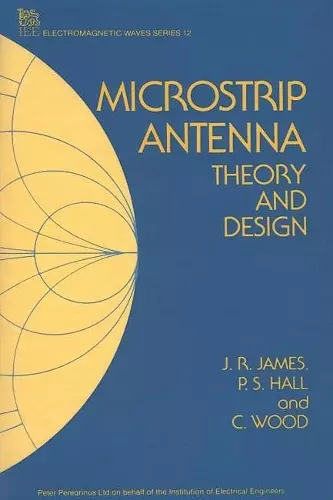Microstrip Antenna Theory and Design
C Wood author JR James author PS Hall author
Format:Paperback
Publisher:Institution of Engineering and Technology
Published:30th Jun '81
Should be back in stock very soon

In the past few years, the concept of creating microwave antennas using microstrip has attracted increasing attention and viable practical designs are now emerging. The purpose of this monograph is to present the reader with an appreciation of the underlying physical action, up-to-date theoretical treatments, useful antenna design approaches and the overall state-of-the-art situation. The emphasis is on antenna engineering design, but to achieve this goal it has been necessary to delve into the behaviour of microstrip in a much wider sense and also include aspects of electromagnetic analysis. As a consequence, the monograph will also be of interest to microstrip circuit designers and to some extent those seeking electromagnetic problems of a challenging nature.
The astronomical progress in miniaturising and integrating electronic circuits in the past decade has recently crerated a positive demand for a new generation of antenna systems. In principle, microstrip antennas are thin planar configurations that are leightweight, low cost, easy to manufacture and can be made conformal with the surfaces of vehicles, missiles etc. The compatibility of microstrip antennas with integrated electronics is another great advantage. However, the microstrip wavetrapping effects inhibit the radiation mechanism and must be taken into account in antenna design. Wave-trapping effects in substrates involve the study of surface waves and discontinuities in open waveguide structures. The microstrip antenna designer must therefore encompass many more effects than previously considered by microstrip circuit designers. It is for these reasons that the scope of this monograph is necessarily somewhat wider than the title may suggest.
The ten chapters are a blend of introductory, practical and theoretical treatments and likely future developments are also highlighted. A good selection of past and current references are given and each chapter concludes with a helpful summary comment.
ISBN: 9780863410888
Dimensions: unknown
Weight: unknown
304 pages